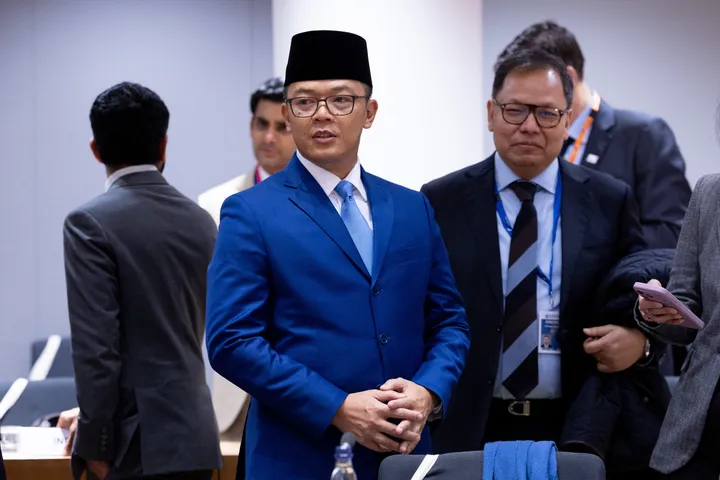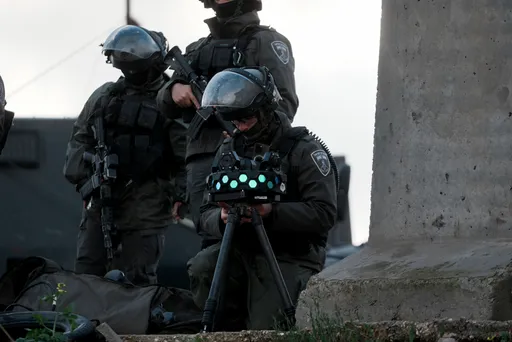The Kurdish Region of Northern Iraq (KRI) is under the spotlight once again after numerous tragic stories of refugees ending up in deadly situations at European borders. Repatriating thousands of Iraqi Kurds stranded on the Belarus border area for weeks to Erbil, the KRI has been struck once again by the horrifying drowning of 27 asylum seekers migrants in the English Channel, many of whom were Iraqi Kurds.
Several governments and activists have criticised what they have called the victimisation of Iraqi Kurds, who spend thousands of dollars on hazardous journeys to reach European lands. The asylum seekers and migrants were also recently subjected to the blame game between the United Kingdom and France.
The KRI accused “international smuggling networks” of using the asylum seekers and migrants for political purposes, as well as Belarus of using them as a “political trump card” against the European Union. While the better living conditions of the EU have always attracted many in the Middle East and beyond, providing smugglers with reasons to set traps for those hoping to reach Europe, the recent collective immigration phenomenon among the Iraqi Kurds has local reasons too.
Adverse economic conditions
The KRI has long been branded as the “other Iraq”, referring to its Western-allied stance and relatively peaceful political, economic and safe atmosphere compared to the rest of Iraq. Hosting around one million refugees and IDPs, the region has also become home to scores of Arabs and Christians who move north to escape the rest of Iraq’s dire security situation.
However, the KRI has also been suffering from worsening economic and security conditions, and the growing political discontent, particularly among young people, has given rise to increasing restlessness among the Iraqi Kurds in recent years.
The KRI has experienced an economic crisis that started with a conflict about energy and budget issues with the Baghdad government in 2014, which was followed by austerity measures that delayed and reduced civil servant salaries until this year. Combined with the expenses from the fight against Daesh, the drop in oil prices, and the burden of refugees, the region suffered from further economic depression.
This was worsened by the implications of the KRI’s independence referendum in 2017. This did not wash away the region’s lasting issues; on the contrary, as a landlocked and economically dependent region, the KRI faced the punitive financial-military measures and embargoes of the central Iraqi government and neighbouring countries.
The referendum also caused the loss of oil-rich Kirkuk to the central government. The retreat of the Peshmerga from the city sparked further tensions between the parties KDP and PUK, and led to a sense of disillusionment among the people, as it demonstrated the precariousness of stability in the region.
Despite the partial restoration of relations with the central government after the freezing of the referendum results, the budget issue has not been completely resolved. This directly influences its six million-strong population, with around one million people on the government payroll. In addition to years-long uncertainty in salaries that still worries many, unemployment issues and overall low income also compel many to work multiple jobs to make ends meet.
Dual administration and political discontent
Having said that, many observers point out that the corruption, nepotism, and patronage network that stem from the political duopoly is among the adverse factors spreading discontent, particularly among the youth.
The KRI has been dominated by the two ruling parties since 1991: the Barzani family-led KDP based in Erbil, and the Talabani family-led PUK based in Sulaymaniyah. Both parties control separate Peshmerga forces, intelligence services, and financial resources under their zones of influence, while the ruling elites and party networks enjoy economic and political privileges. This deep-seated dual administration itself has long been criticised by opposition parties and the educated newer generations.
As a matter of fact, the existing protest culture in KRI is indicative of economic and political dissatisfactions. It is common to witness several demonstrations rooted in economic grievances easily turning into anti-government protests that spread throughout the region, and usually end up in violence.
During last year’s protests, KRI authorities were accused of “arbitrary arrests and [the] enforced disappearance of activists and journalists” by Amnesty International. Coinciding with the recent immigration crisis, the university students’ protest demanding the reinstatement of monthly financial stipends and better dormitory conditions in the previous weeks also resulted in violence and hundreds of arrests.
Lack of security
Having experienced bloody intra-Kurdish fighting, the Baathist regime’s deadly attacks in 1980-90s, and Daesh’s genocidal massacre in 2014, many in the KRI seek safer lives.
In this context, the KRI is still exposed to increasing Daesh threats, particularly in the “disputed areas” where conflicts between the Baghdad government and Kurdish Region over control affects the region. Although the victory against Daesh was declared in 2017, the group still continues its activities, as seen in latest attacks resulting in the death of 18 Peshmerga and three civilians.
The KRI announced that most of the asylum seekers and migrants were from “disputed areas” and Duhok Governorate, where the PKK terror group is active. Likewise, the KRI is subjected to Iran's attacks against the opposition Iranian Kurds in KRI and also to the attacks reportedly led by the Iran-back Iraqi militias on the US military bases in Erbil and surroundings.
Without absolute sovereignty in its territories, alongside ongoing conflicts and threats, the KRI seems safer than the rest of chaotic Iraq but is still not a safe place.
As a result, as long as the socio-economic, political and security concerns cumulatively impose burdens on the people, the immigration phenomenon will continue, particularly among the young, educated and disgruntled generations.























